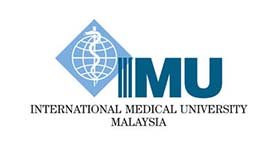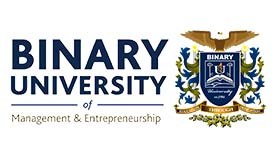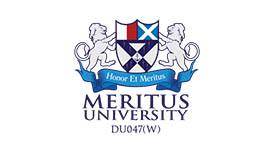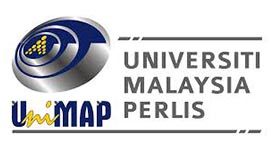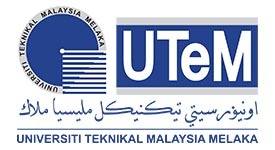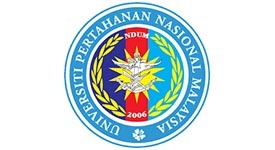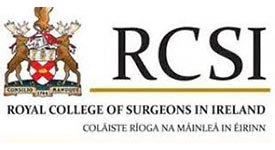Animal Science Course in Malaysia : Complete Guide for International Students

- Home
- Specialization
- Animal Science
Overview
Animal Science Course in Malaysia offers complete education for diploma, bachelor's degree, master's level, as well as PhD. They cover subjects including animal nutrition genetics, management of livestock, and veterinary science, providing students with the knowledge for careers in research, agriculture, and the industries of animal health.
The top institutions such as Universiti Putra Malaysia (UPM) are renowned for their solid scientific reputation in the field of animal sciences. The tuition fees for undergraduate courses vary between RM 30000 up to RM sixty thousand, and postgraduate studies begin with RM 20k per year.b Students of animal science courses will have a good chance of finding work beginning salaries of RM 35, 000 to RM $50,000 annually, contingent on the area they specialize in.
The diverse ecosystem of Malaysia and its agricultural sector makes it a great place for students who are fascinated by the field of animal sciences. The low cost of living, the multi-cultural environment, as well as industrial partnerships enhance your experience as an international student studying animal science in Malaysia.
Why Animal Science Course in Malaysia
Studying Animal Science Course in Malaysia offers an unbeatable combination of top-quality training and a wide range of experiences in the arts. Leading universities like Universiti Putra Malaysia (UPM) as well as Universiti Malaysia Sarawak (UNIMAS) offer comprehensive courses backed with advanced research facilities as well as knowledgeable faculty. They are situated in cities that are vibrant, such as Serdang and Kuching providing students with access to numerous opportunities for recreation, culture, as well as professional possibilities.
English is the main language of instruction, making sure international students are able to participate in their academic research. Numerous universities have formed alliances with international institutions to enhance the educational experience through exchange programs and collaboration research projects.
Furthermore, Malaysia's abundant diversity and flourishing agricultural industry offer plenty of opportunities for practical training and internships throughout a range of disciplines including veterinary science, to management of livestock. The combination of high academic standards as well as practical knowledge and an hospitable environment make Malaysia an appealing location for students who want to become Animal Science professionals.
International Students Studying Animal Science Course in Malaysia
Malaysia is a popular place for international students to study Animal Science Courses due to its quality education, low cost of tuition, and its an array of cultural environments. This is a brief overview of international students who are interested in taking classes in Animal Science in Malaysia:
- High-Quality Education
- Malaysia has a number of highly ranked universities, including Universiti Putra Malaysia (UPM) as well as Universiti Malaysia Kelantan (UMK) well-known for their prestigious program in the fields of agriculture and veterinary sciences. They offer the latest research facilities, as well as an international education atmosphere
- Affordable Tuition Fees
- International Students from other countries benefit from affordable tuition costs compared to the majority of Western nations. Based on the amount of education, the fees vary between $3,000 and $10,000 annually to Animal Science programs.
- English-medium Instruction
- Animal Science programs that are offered in Malaysia generally are offered in English This is a great option for students of various backgrounds.
- Cultural Diversity and Welcoming Environment
- Malaysia provides a multi-cultural experience that includes students from around the globe. This variety provides an enriching setting for both personal and academic development.

List of Animal Science Universities in Malaysia with courses
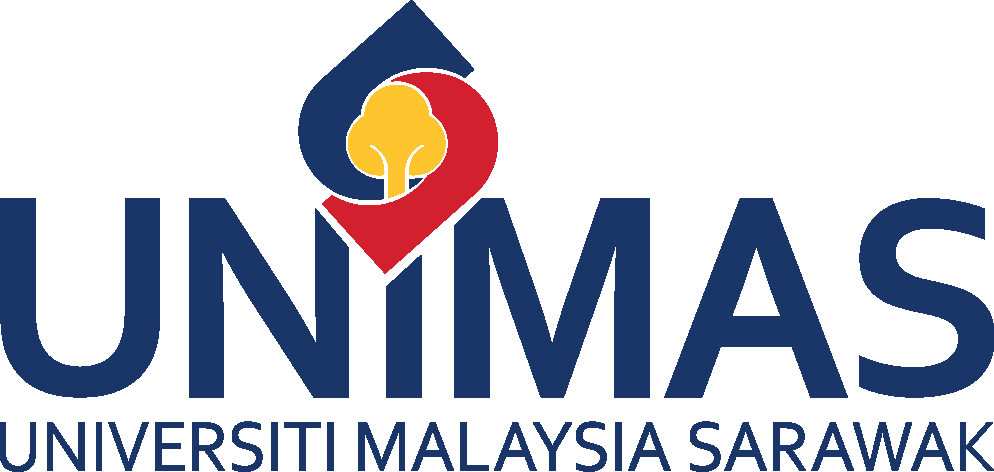
Courses:
66World Rank:
1001-1200Scholarship: Yes
66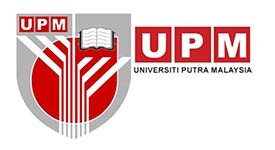
Courses:
56World Rank:
148Scholarship: Yes
56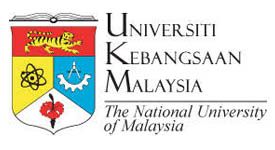
Courses:
208World Rank:
138Scholarship: Yes
208
Courses:
31World Rank:
Scholarship: Yes
31TOP Universities in Malaysia
| TOP Universities in Malaysia | QS Ranking 2025 |
|---|---|
| Universiti Malaya (UM) | 60 |
| Universiti Kebangsaan Malaysia (UKM) | 138 |
| Universiti Sains Malaysia (USM) | 146 |
| Universiti Putra Malaysia (UPM) | 148 |
| Universiti Teknologi MARA (UiTM) | 587 |
Source: QS Ranking 2025
Education Levels of Animal Science Course
- Diploma:
- It is usually a two- to three-year programme.
- The course provides a basic understanding of the areas of animal husbandry, nutrition and management.
- Students are prepared for entry-level jobs within the business or additional research.
- Undergraduate Degree:
- It is usually a four-year course.
- Explores the in-depth aspects of animal genetics, physiology as well as the science of veterinary medicine.
- Graduates are prepared for different tasks in the fields of agriculture, research as well as animal care.
- Postgraduate Degree:
- It is typically a one-to two-year degree, it is available in a research or taught degree.
- The focus is on topics that are advanced as well as research methods.
- Trains students for leadership positions within academia, industry or in specialized research.
- PhD:
- A typical three- to five-year, research-focused program.
- Research as well as dissertations in highly specialized fields.
- Students often go on to jobs in academia as well as advanced research or higher-level positions in consulting.
Diploma in Animal Science in Malaysia
Overview
The Diploma in Animal Science in Malaysia is a complete programme designed to equip students with the fundamental understanding and skills for the areas of animal husbandry, nutrition and management. The two- to three-year program is focused on different aspects of care for animals including veterinary procedures, animal husbandry, and production of livestock, which prepares students for positions at entry level within the veterinary and agricultural industries.
Intakes
The majority of institutions provide various intakes during the year. Typically, they are between January, May and in September. The flexibility lets students pick a time that is suitable to start their studies.
Entry Requirements
- Academic Qualifications:
- SPM (Sijil Pelajaran Malaysia) or equivalent, with at least three credits including Sciences and Mathematics.
- English Proficiency:
Tuition Fee
The tuition fees for courses that lead to the Diploma in Animal Science typically are between $2,500 and $5,000 annually, based on the institution and the course's structure. Costs for additional materials as well as practical training sessions could be incurred.
Jobs for Diploma Holders in Animal Science
Students who have an Diploma of Animal Science can pursue various jobs, such as:
- Livestock Farm Manager
- Veterinary Assistant
- Animal Nutritionist
- Animal Welfare Officer
- Research Assistants working in veterinary or agricultural settings
Bachelor in Animal Science in Malaysia
Overview
The Bachelor in Animal Science program in Malaysia is a four-year comprehensive program that focuses on the research of animals' biology, animal food, husbandry and overall health. The course provides students with the latest knowledge as well as practical abilities to manage the production of animals and to ensure the welfare of animals. They also train graduates to take on various positions in veterinary research, animal care as well as agricultural management.
Intakes
Many universities provide different intakes during the year. Typically, they are between January, May and September. Students have the option of beginning their studies according to the circumstances of their particular situation.
Entry Requirements
- Academic Qualifications:
- Successful completion or completion of STPM (Sijil Tinggi Persekolahan Malaysia) at a minimum of 2 primary scores, or a comparable certification such as A-levels or a foundation in science.
- English Proficiency:
- International students must have the minimum score of accepted English proficiency test (e.g. IELTS or TOEFL) will often be required.
Tuition Fee
Fees for tuition to those pursuing the Bachelor in Animal Science generally can range from $3000 to $10,000 each year, contingent upon the school and specific structure of the program. Costs for additional the use of field trips, materials, and even practical training sessions could be charged.
Jobs for Graduates in Animal Science
Students who have a bachelor's degree in Animal Science can explore various options for careers, such as:
- Animal Nutritionist
- Veterinary Technologist
- Livestock Manager
- Research Scientist
- Animal Health Consultant
Master's in Animal Science in Malaysia
Overview
It is a Master's in Animal Science in Malaysia is an exclusive program for those seeking to acquire advanced knowledge and skills for research within the areas of the animal sciences, nutrition and management of health. The program lasts from one to two years. usually consists of courses and a research thesis that allows students to be part of the scientific community and tackle current issues related to animal science.
Intakes
Many universities provide two main intakes per year, typically during the months of the months of January and September. There are some institutions that offer other intakes that allow students the flexibility to studies.
Entry Requirements
- Academic Qualifications:
- A bachelor's Degree with a major in Animal Science or a related discipline that has the minimum CGPA (Cumulative Graduation Point Average) of 2.75 or equivalent.
- English Proficiency:
- Students from abroad are typically expected to submit results from the recognized English proficiency test (e.g. IELTS and TOEFL).
Tuition Fee
The tuition fees for the Master's program in Animal Science typically range from $4000 to $12,000 annually subject to the particular university and the program's structure. Other costs associated with research equipment lab work, research materials, as well as other fees may apply.
Jobs for Masters' degree holders in Animal Science
Masters' degree holders in Animal Science can pursue various options for career advancement, including:
- Research Scientists in animal or veterinary research fields
- Animal Health Consultant
- University Lecturer or Academic Researcher
- Management roles in the production of livestock as well as the management of livestock production
- Policy Advisor on Agriculture and animal welfare
PhD in Animal Science in Malaysia
Overview
The PhD with a focus on Animal Science in Malaysia is an intense research-oriented program designed to build a high-level of expertise in areas that include animal genetics, the physiology of nutrition, and health. This type of program usually lasts from between three and five years. It includes conducting research that is original under the supervision of skilled professors. PhD candidates must bring new insights to their field by completing their dissertation and position themselves as specialists in the field of animal science.
Intakes
The majority of universities provide flexibility in intake times for PhD programmes, usually between January, May and September. Certain institutions allow accepting students on a rolling basis, based on the research proposal of the applicant as well as the supervisor's availability.
Entry Requirements
- Academic Qualifications:
- An accredited Master's degree in Animal Science or a related discipline with an impressive academic track record.
- Students who have a Bachelor's Degree with First-Class Honors can be eligible.
- Research Proposal:
- An appropriately-designed research proposal for an appropriate area of animal science is necessary.
- English Proficiency:
- International students require the IELTS scores of 6.0 or greater or an equivalent score from other internationally recognised English tests for language proficiency, might be needed.
Tuition Fee
The tuition fees for the PhD on Animal Science in Malaysia range between $5,000 and $10,000 annually, based upon the institution and subject of the research. Further costs related to research material as well as laboratory work and field research may be required.
Jobs for PhD Graduates in Animal Science Course
Students who have an PhD or a Ph.D. Animal Science can pursue high-level jobs such as
- Academic Professors: Conducting and teaching research at universities.
- Senior Research Scientist Responsible for research initiatives in the areas of animal genetics, health and production.
- Veterinarian Research Consultant: Provides an expert opinion to veterinarian institutions as well as other organizations.
- Policy Advisor: working in conjunction with international or governmental agencies regarding animal welfare as well as policy on agriculture.
- Director for Livestock Operations Management of large-scale livestock farms as well as improving the production system.
Comparison of Animal Science Courses in Malaysia vs US and UK
| Factor | Malaysia | United States | United Kingdom |
|---|---|---|---|
| Tuition Fees (Annual) | $4,500 - $10,000 | $25,000 - $55,000 | $15,000 - $35,000 |
| Program Duration (Bachelor's) | 3 - 4 years | 4 years | 3 years |
| Living Costs (Monthly) | $200 - $500 | $1,000 - $2,000 | $1,000 - $1,500 |
| Total Estimated Cost (3-4 years) | $15,300 - $44,000 | $100,000 - $260,000 | $48,000 - $130,000 |
| Scholarships Available | Yes, various options | Yes, various options | Yes, various options |
| Language of Instruction | English | English | English |
Career Prospects of Animal Science Course in Malaysia
- Growing Demand:
- The increasing focus is on the security of food and the welfare of animals.
- There is a growing need for professionals with expertise in the management of livestock and veterinarian health.
- Employment Opportunities:
- Different roles in different sectors, include:
- Livestock Management: Managing livestock husbandry practices.
- Animal Health: Working as vets or vet technicians.
- Research: Participating in research related to agriculture or biology
- Conservation: Engaging in the conservation of wildlife and habitats.
- Different roles in different sectors, include:
- Salary Expectations:
- Starting-Level Jobs: The average salary can range from $12,000-$20,000 per year.
- Career advancement: Possibility of greater earnings when you have experience and a specialization.
- Top Employers:
- Animal clinics, agricultural firms as well as research institutes and public agencies are currently looking for.
- Sustainable Practices:
- The emphasis is growing on the use of innovative and sustainable agriculture methods in Malaysia improving job prospects
Living Cost to Study Animal Science Course in Malaysia
| Expense Category | Estimated Monthly Cost (RM) |
|---|---|
| Accommodation | RM 400 - RM 1,500 |
| Food | RM 300 - RM 600 |
| Transportation | RM 100 - RM 300 |
| WiFi/Internet | RM 80 - RM 150 |
| Miscellaneous | RM 200 - RM 400 |
Application Timeline for International Students in Malaysia
| Stage | Timeline | Details |
|---|---|---|
| Research Universities | 6-12 months prior to intake | Find out about universities that offer Animal Science programs in Malaysia. Concentrate on the requirements, the program outline, and the scholarship opportunities available. |
| Check Entry Requirements | 6 to 9 months before intake | Check academic qualification, review the proficiency in language (IELTS/TOEFL) along with additional prerequisites to taking the Animal Science course. |
| Prepare Documents | 6 to 8 months prior to intake | Take care to gather the required documents like the transcript of your academic studies, a personal statement, letters of recommendation, and passport copies. |
| Submit Application | 6 months before the intake | Fill out and send the application form to the chosen institution via their website portal. Check that all required documents are submitted. |
| Pay Application Fees | 5 to 6 months prior to the intake | Make sure you pay the necessary application fee during the application process. |
| Scholarship Applications | 5-6 months prior to the time of intake | Request scholarships at the institution or via other external sources. Make sure you check deadlines, as they may vary. |
| Await Admission Decision | 3-4 months prior to the intake | Universities will evaluate the applications. This process may involve interviews or the submission of additional documents if requested. |
| Receive Offer Letter | 3-4 months before the intake | If accepted, you'll receive an offer letter, which can be used to proceed with lodging arrangements and visa applications. |
| Apply for Visa | 3-4 months prior to the intake | Start the visa application process after receiving the offer letter. Make sure you have the necessary documents, including medical and financial records. |
| Arrange Accommodation | A minimum of 3 months before intake | Find secure accommodation on or off campus. Some universities offer assistance in securing housing for international students. |
| Enrollment and Payment | 1 to 2 months prior to intake | Complete the enrollment process, pay tuition, and register for classes. Be mindful of tuition payment deadlines. |
| Prepare for Travel | 1 month prior to intake | Make final travel arrangements to Malaysia, including flight booking and airport pickup (if provided by the institution). |
| Orientation | 1 week prior to intake | Participate in university orientation events to get familiar with the campus facilities and your program of study. |
| Program Start | Intake (January, May, or September) | The Animal Science program begins according to the intake you applied for. Malaysian universities generally offer intakes in January, May, and September. |
Application Process for Animal Science Programs in Malaysia
The procedure for applying to Animal Science programs in Malaysia for diplomas, such as a bachelor's or master's degree, bachelor's degree, or PhD, usually includes the following steps:
- Choose Your Program and University
- Research universities that offer Animal Science programs and select one that is compatible with your goals for career and educational qualifications.
- Check Entry Requirements
- Make sure you have the required academic standards as well as the English skills requirements to be eligible for the degree program (SPM/STPM for bachelor's degree and bachelor's for master's and master's to get PhD).
- Prepare Necessary Documents
- The documents required may contain:
- Certificates and academic transcripts.
- An active travel document (for foreign students).
- English tests for language (IELTS/TOEFL).
- Curriculum Vitae (CV) required for postgraduate admissions.
- Research plan (for Master's and Ph.D. program).
- Submit Application
- Application forms are typically completed online using the portal for admissions at the university. Apply online and upload the documents required.
- Pay Application Fee
- Some schools charge an non-refundable application fee. This differs based on the particular institution.
- Wait for Admission Decision
- Following submission, the institution is going to review the submission. The process of deciding on your application could last a few weeks according to the degree level.
- Receive Offer Letter
- If you're accepted, you'll be sent an acceptance letter detailing the next steps that include the tuition fee as well as visa applications (for students from abroad).
- Apply for a Student Visa
- Students from abroad must submit a request for a student visa via the Malaysian Immigration Department or the Education Malaysia Global Services (EMGS) portal following receipt of the letter of offer.
- Confirm Enrollment
- Make the tuition payment and then confirm your enrollment in order to ensure your spot within the course.
Visa Process for Studying in Malaysia
International Students from abroad who plan to study Animal Science Courses in Malaysia must be aware of the application procedure. The following is a brief summary of the process:
- Receive Offer Letter
- When applying for a visa, you first need to get an official invitation letter from the Malaysian university.
- Apply Through EMGS Portal
- Students from all over the world must submit a request for a student visa via the Education Malaysia Global Services (EMGS) portal. This portal facilitates application for visas and offers regular updates.
- Submit Required Documents
- It is necessary to create and upload these documents:
- The offer letter copy from the institution.
- Passport (valid for a minimum of twelve months).
- Passport-sized photographs.
- Certificates and academic transcripts.
- Evidence to prove English proficiency (if appropriate).
- Medical examination report (required for certain applicants).
- It is necessary to create and upload these documents:
- Pay Visa Processing Fee
- An application fee for processing visas that varies based on the origin country, has to be paid via an EMGS portal.
- Receive Visa Approval Letter (VAL)
- After your application has been processed and approved, you'll be issued a Visa Approval Letter (VAL). It's a vital document that is required to be able to enter Malaysia.
- Pre-Arrival Medical Checkup
- Certain students might be required to have a medical examination and then submit an official medical certificate prior to traveling to Malaysia.
- Travel to Malaysia
- Once you've got the VAL You can now go with the VAL in hand to Malaysia. It is necessary to show the VAL along with other pertinent documents when you arrive at the airport.
- Post-Arrival Medical Screening
- Once you have arrived upon arrival in Malaysia after arriving, you will need to undergo an obligatory medical examination at a certified health centre.
- Get Student Pass
- Once you've cleared the medical examination After passing the medical screening, the institution will help in getting after passing the medical screening, you will be able to obtain your Student Pass, which is granted through Malaysian Immigration Department. Malaysian Immigration Department. It allows students to remain and continue their studies in Malaysia during the course of your study.
Scholarships for International Students in Animal Science in Malaysia
Malaysia has a wide range of international student scholarships who are pursuing Animal Science courses, helping to lower financial hurdles and access world-class training. These are some of the most prestigious scholarships:
- Malaysia International Scholarship (MIS)
- The eligibility criteria are international students who want to complete postgraduate study in areas that include Animal Science.
- Benefits: Coverage of tuition costs and a monthly allowance for living expenses as well as additional benefits.
- Application: Visit the official website for any requirements and dates.
- ASEAN Scholarships
- Inclusion: Students from ASEAN nations who enroll either in postgraduate or undergraduate Animal Science programs.
- Protection: Full or partial fees for tuition, along with a few scholarship awards that provide allowances to cover costs of living.
- Applications: Make an application directly to institutions that offer Animal Science courses.
- University-Specific Scholarships
- There are many Malaysian institutions that provide Animal Science programs provide scholarships for students from abroad. These can be:
- Scholarships based on merit for academic excellence.
- Scholarships based on need for those who demonstrate the need for financial aid.
- The most reputable universities are Universiti Putra Malaysia (UPM) as well as Universiti Malaysia Kelantan (UMK) famous by the Animal Science programs.
- There are many Malaysian institutions that provide Animal Science programs provide scholarships for students from abroad. These can be:
- Commonwealth Scholarships
- Candidates: Students who are from Commonwealth nations who pursue postgraduate degree programs within Animal Science and related fields.
- The coverage includes tuition costs in full as well as travel expenses, plus an expense allowance to cover living expenses.
- Yayasan Khazanah Global Scholarship
- Students from certain nations (including ASEAN) pursuing both graduate and undergraduate courses in disciplines like Animal Science.
- Complete coverage, including accommodation, tuition and allowances for living.
- Professional & Industry-Specific Scholarships
- Certain industries and agribusinesses located in Malaysia specifically those that focus on animal husbandry as well as veterinary sciences, could offer scholarships to help future talents with a focus on Animal Science.
- Coverage varies from full to partial tuition and includes work placements and internships following the completion of your studies.
How to Apply
- Research Scholarships: Start with a search for scholarships in the institutions that offer Animal Science programs in Malaysia. Numerous top institutions offer scholarship portals.
- Be sure to check your eligibility. have all the qualifications for the scholarship, which includes the academic requirements and proficiency in a language.
- Create Documents: Collect the necessary documents such as academic transcripts or recommendation letters as well as personal statements.
- Submit Applications: Send in your applications for scholarships well in advance of deadlines and follow the rules of each institution.
FAQs : Animal Science
- Universiti Putra Malaysia (UPM)
- Universiti Malaysia Kelantan (UMK)
- Universiti Malaysia Sarawak (UNIMAS)
- Certificate: 2 to 3 years
- Bachelor's Degree: Four years
- Master's Degree: 1 to 2 years
- PhD: 3 to 5 years
- Diploma: SPM, with 3 credits that include Science and Mathematics.
- Bachelor's degree: STPM, with two primary scores (or equivalent) (A-levels).
- Master's or Ph.D.: A valid bachelor's or master's level degree, with a high CGPA.
- Certificate: RM 10,000 to RM 120,000 annually
- Bachelor's degree: RM 30,000 to RM 60,000 for the complete degree
- Master's/PhD: RM 20,000 to RM 40,000 each year
- Livestock management
- Veterinarian care
- Animal nutrition
- Research on agriculture
- Conservation of wildlife
- Select a university and program.
- Make sure you are able to meet admission requirements (academic credentials, English proficiency).
- Make an online application and attach all the required documentation.
- Request a visa for students upon receiving an acceptance letter from the university.

